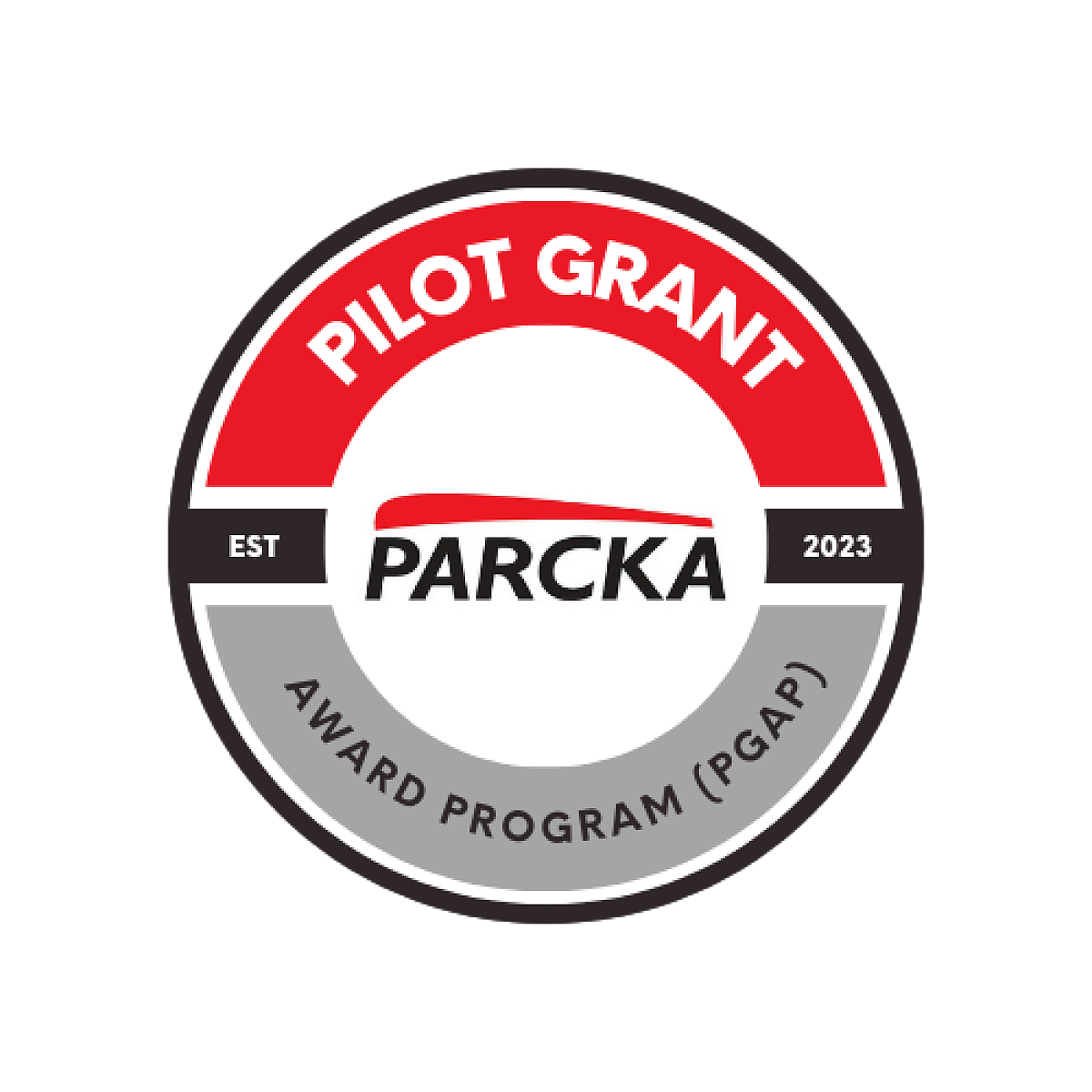
PARCKA Pilot Grant Award Program
PARCKA Pilot Grant Award Program
The goal of the PARCKA Pilot Grant Award Program is to enable faculty and trainees to obtain information, data, and results that can help them to prepare for major research grant submissions to the National Institutes of Health, Veterans Affairs, and other agencies or to initiate new directions in addiction-related clinical care, education, or advocacy activities.
The PARCKA Pilot Grant Award Program is intended to assist junior faculty or trainees or more senior faculty or trainees who are exploring new addiction-related topics in anticipation for larger grant awards.

PURPOSE
The PARCKA Pilot Grant Award Program provides grant awards to enable faculty and staff to initiate novel initiatives and research activities within the scope of PARCKA. The mission of PARCKA is to promote and provide addiction related research, clinical care, knowledge and advocacy across the University of Utah, the local community, the state, and the nation. PARCKA operates in four areas of focus through collaboration and partnerships:
- Addiction-related research
- Clinical care and evaluations of new models of addiction care delivery
- Addiction-related education to clinicians, trainees, students, and the public
- Addiction recovery, health, and care advocacy, including community engagement and outreach
The goal of the PARCKA Pilot Grant Award Program is to enable faculty and trainees to obtain information, data, and results that can help them to prepare for major research grant submissions to the National Institutes of Health, Veterans Affairs, and other agencies or to initiate new directions in addiction-related clinical care, education, or advocacy activities. The PARCKA Pilot Grant Award Program is intended to assist junior faculty or trainees or more senior faculty or trainees who are exploring new addiction-related topics in anticipation for larger grant awards.
The intention is that this PARCKA Pilot Grant Award Program will propel the faculty or trainee to compete successfully for additional internal or external resources. For proposed research activities, any applications require an IRB exemption or approval before project work can commence.
Awardees will be required to present their work at either the PARCKA Parleys or the Greater Intermountain Node’s On the Rocks seminar series regarding their planned proposal activities and/or within 6 months of their completed proposal activities.
DEADLINES
- Friday, November 1, 2024: Email to PARCKA@hsc.utah.edu indicating your intention to apply. This email should include the presumptive title, key faculty involved, and 2-3 sentences regarding the presumptive proposal.
- Friday, December 6, 2024: Proposals due via email to PARCKA@hsc.utah.edu. The email should include a single .pdf file of all the elements of the application. See instructions below.
- Friday, February 7, 2025: Funding decisions communicated to applicants.
ELIGIBILITY
Applicants must be current faculty or mentored trainees of 1) University of Utah, 2) University of Utah Health, and/or the 3) VA Salt Lake City Health Care System.
FUNDING DETAILS
- Funding Period: 07/01/2025 - 06/30/2026
- Funding Allowed Per Proposal: $7,500.00
- Number of Anticipated Awards: One award is guaranteed and up to 3 depending on availability of funding.
When preparing a budget, please keep in mind that the budget may be up to 10-12 months for a maximum of $7,500 and should be used only for the work needed to accomplish the specified objectives and outcomes. No cost extensions will be allowed. Funds cannot be used to support faculty salary. Funds will be delivered to the awardee’s department and should remain internal to the University of Utah or VA Salt Lake City Health Care System. Subcontracts /contractors will not be allowed. If staff time is required and the applicant does not have dedicated/named staff, PARCKA can potentially allocate staff to complete the work proposed. Please discuss the budget with PARCKA prior applying. This PARCKA Pilot Grant Award Program will not fund any indirect expenses.
PROPOSAL GUIDELINES
The following is required in this 4-page (11-point font, single spaced, 0.5-inch margins) proposal:
- Cover Page. Provide the project title, key faculty [Principal Investigators (PI) and co-investigators] names and affiliations and contact information of the PI. The Cover Page is NOT included in the 4-page limit.
- Abstract Page. Provide a 250-word brief description of the proposal. The Abstract is NOT included in the 4-page limit).
- Background. Describe the project’s significance and contribution to a critical area relevant to PARCKA.
- Specific Aims and Approach. Describe the objectives and the specific activities and approaches that will be carried out to meet these objectives (including addressing potential challenges).
- Methods and Outcomes. Describe the methods and anticipated outcomes.
- Data Sources. Describe the existing sources of data or specimens relevant to the project, availability of these data sources, and the research team’s experience with them.
- Need for PARCKA Pilot Grant Award funding. Describe why you need funding to inform your future, larger projects.
- Research Team and Relevant Experience. Describe the key members of the research team (including mentors, co-investigators, and/or staff and their organizations), their roles, and their relevant expertise and experience in this area of research and/or evaluation. Cross campus, interprofessional, and interdisciplinary teams of applicants are strongly encouraged.
- Plan for Project Management. It is expected that project management occurs independently between awardees and their project teams. This includes, but is not limited to, project coordination; conducting study activities and procedures; regulatory and reporting; management of funds (e.g., purchasing, budgeting); and collecting, examining, and maintaining data. Please describe your plan for project management (e.g., staffing expectations, department/administrative support, etc.). If project support is required and awardees do not have dedicated staff or department support, PARCKA may potentially be able to allocate staff time to assist in proposed work. If you will be requiring this, please indicate this in this section and what will be required by PARCKA.
- Timeline. Provide a brief description (or a Gantt chart) outlining the projected timeframe for key project activities and deliverables.
- Format. All submission documents should be free of spelling and grammar errors and follow appropriate fonts, no headers/footers, etc.
Additionally, please provide:
- References (NOT included in the 4-page limit).
- Budget. Provide a summary budget table and budget justification for the PARCKA Pilot Grant Award Program proposal. See below for budget considerations. (NOT included in the 4-page limit).
- PI Biosketch. Please include the Principal Investigator’s current NIH or VA biosketch. (NOT included in the 4-page limit).
- Biosketch of PI’s Mentor. If this is to be a mentored award, please include the mentor’s or mentors’ current NIH or VA biosketch(es). This is only required if applicant is considered a mentored scholar at time of application. (NOT included in the 4-page limit).
- Co-investigator(s) biosketch (if applicable). If a co-investigator is providing substantial and key expertise to the proposal, please include a current NIH or VA biosketch. (NOT included in the 4-page limit).
CONTACT US
- Questions can be directed via email to PARCKA@hsc.utah.edu
- Director: Adam Gordon, MD, MPH (adam.gordon@hsc.utah.edu)
- Coordinator: Mitchell Garets, MSW (mitchell.garets@hsc.utah.edu)
LAURA STOLEBARGER, BSN, RN
Expanding a Collaborative Care Model for Patients with Methamphetamine Use Disorder and Associated Cardiopulmonary Conditions
- Principal Investigators: Laura Stolebarger, BSN, RN (right)
- Co-Investigators: Michael Incze, MD, MSEd; Katharine Clapham, MD; and Jennalyn Mayeux, APRN
- Duration: July 1, 2024 - June 30, 2025
Methamphetamine use disorder (MUD) has been increasingly recognized as a major public health concern, especially in the western US. Methamphetamine use is associated with increased risk of death, as well as the development of severe acute and chronic cardiopulmonary sequelae. While national estimates currently suggest that 4-5% of people with pulmonary arterial hypertension (PAH) have a methamphetamine-associated etiology (meth-PAH), registry data at the University of Utah, where patients with PAH are routinely screened for methamphetamine use, identified a meth-PAH prevalence of 24%. Currently, there are no FDA-approved pharmacologic treatments for MUD, but behavioral treatments such as contingency management have been shown to be effective. Integrating contingency management and expert addiction care into cardiology specialty clinics has demonstrated promise in expanding access to MUD treatment. In July of 2023, we started a collaborative care pilot between a primary care-based substance use disorder treatment clinic and pulmonary hypertension program where we provide contingency management, peer support services, and full spectrum primary care coordinated with specialty care for meth-PAH. Our pilot program enrolled 6 patients (in addition to 4 more patients with MUD and no known cardiopulmonary disease), with early signals of benefit including improved MUD and cardiopulmonary outcomes. We seek to expand this work to increase enrollment among patients with meth-PAH as well as patients with methamphetamine-associated heart failure. We plan to eventually develop and test our intervention through a multi-site randomized clinical trial of a collaborative care intervention for patients with methamphetamine-associated cardiopulmonary conditions.

MARCELA SMID, MD, MS, MA
University of Utah’s opioid-sparing protocol for post-cesarean pain management for dyads affected by opioid and other substance use disorder: maternal, post-cesarean pain-related and infant outcomes
- Principal Investigators: Marcela Smid, MD, MA, MS (right)
- Co-Investigators: Torri Metz, MD, MS, Theresa Kurtz, MD and Elizabeth Charron, PhD
- Duration: July 1, 2023 - June 30, 2024
Poor post-cesarean pain management is associated with adverse perinatal outcomes and few evidence-based practices exist to guide interventions particularly for individuals with opioid use disorder. Many institutions have developed their own pain management strategies for this population. The University of Utah is part of the Buprenorphine for Opioid Use Disorder and Cesarean Outcomes (BRONCO) Consortium, a five-institution collaborative. The BRONCO Consortium aims to compare pain management strategies across these five institutions to inform a larger trial to determine optimal pain management strategy for pregnant individuals with OUD delivering via cesarean. We have completed data abstraction for those 108 individuals with OUD who received the University of Utah’s opioid-sparing protocol, which was implemented in 2018. This project aims to further compare post-cesarean pain score and opioid usage during delivery hospitalization among three groups of individuals who delivered at the University of Utah via cesarean (2014-2022): 1) individuals with OUD/SUD who received the opioid sparing protocol (2018-2022) 2) individuals with OUD/SUD who did not receive the opioid-sparing protocol (2014-2022) and 3) matched control individuals without OUD/SUD (2014-2022). The results of this study will help to inform the planned R01 submission on pain management strategies for postcesarean pain management for individuals with OUD.
